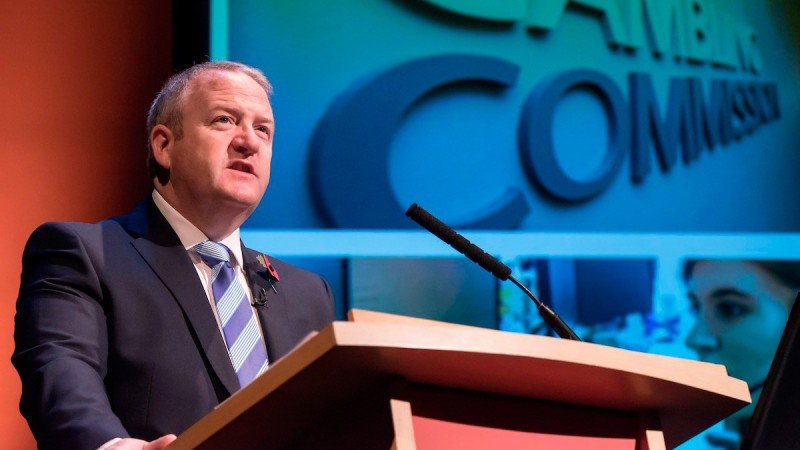UK to ban gambling with credit cards from April 14

The UK Gambling Commission (UKGC) announced Tuesday a ban on gambling businesses allowing consumers in the UK to use credit cards to gamble.
The ban, which comes into effect on 14 April, follows the regulator’s review of online gambling and the Government’s Review of Gaming Machines and Social Responsibility Measures. A public consultation was carried out between August and November 2019.
24 million adults in Great Britain gamble, with 10.5 million of those gambling online. UK Finance estimate that 800,000 consumers use credit cards to gamble. Separate research undertaken by the UKGC shows that 22% of online gamblers using credit cards to gamble are classed as problem gamblers – with even more at some risk of harm.
The ban, which will apply to all online and offline gambling products with the exception of non-remote lotteries, will provide a significant layer of additional protection to vulnerable people.
In a news release, UKGC CEO Neil McArthur said: “Credit card gambling can lead to significant financial harm. The ban that we have announced today should minimise the risks of harm to consumers from gambling with money they do not have.”
‘“We also know that there are examples of consumers who have accumulated tens of thousands of pounds of debt through gambling because of credit card availability. There is also evidence that the fees charged by credit cards can exacerbate the situation because the consumer can try to chase losses to a greater extent,” he added.
Our CEO, Neil McArthur, explains the importance of the ban and why we have put this in place. Read the full details here: https://t.co/pBGUggypoy pic.twitter.com/nGjHV9lKIA
— Gambling Commission (@GamRegGB) January 14, 2020
McArthur said although he understood that some consumers used credit cards because they were convenient, the risk of harm to others was too high to allow the use of credit cards to continue. “We realise that this change will inconvenience those consumers who use credit cards responsibly but we are satisfied that reducing the risk of harm to other consumers means that action must be taken.” he said. “But we will evaluate the ban and watch closely for any unintended circumstances for consumers.”
McArthur warned that although likely to reduce gambling harm, the banning of credit cards needed to be accompanied by other efforts. “The ban is part of our ongoing work to reduce gambling harm. We also need to continue the work we have been doing with gambling operators and the finance industry to ensure consumers only gamble with money they can afford to spend.”
Last year, the UK Department for Digital, Culture, Media and Sport (DCMS) ministers also met with banks and gambling operators to discuss their growing concerns, and how companies could use technology and customer data to help those at risk of developing gambling problems, including those using credit cards.
Culture Minister Helen Whately said: “Whilst millions gamble responsibly, I have also met people whose lives have been turned upside down by gambling addiction. There is clear evidence of harm from consumers betting with money they do not have, so it is absolutely right that we act decisively to protect them.”
“We will be carrying out a review of the Gambling Act to ensure it is fit for the digital age and we will be launching a new nationwide addiction strategy in 2020,” she added.
Today we’re annoucing a ban on gambling with credit cards, recognising the particular risks of harm from betting with money you don’t have...and as we do so, delivering on a @Conservatives manifesto commitment https://t.co/27TIH3Kg7L
— Helen Whately (@Helen_Whately) January 14, 2020
GamStop
Today has also seen the UKGC announce changes to licence conditions which will require all online gambling operators to participate in the multi-operator self-exclusion GamStop scheme and offer their customers the service from 31 March.
The scheme that has been developed for the online sector will allow consumers to self-exclude from online operators with one request rather than from each operator individually.
McArthur commented: “We welcome the fact that GamStop have got to this stage in their development and encourage them to continue to improve their offer, particularly in relation to preventing those who have self-excluded being targeted by direct marketing. Operators must do everything they can to minimise the risk of gambling related harm. That is why we expect the industry to create safe products, know their customers, understand what they can afford to gamble with and identify when they are experiencing harm and step in.”
Whately said: “I have been encouraged by the majority of major high street banks introducing measures to allow customers to switch off spending on gambling through mobile apps. By making it a regulatory requirement for all online gambling websites licensed in Great Britain to sign up to GamStop, I am confident that people who have taken the significant step to opt out of gambling will be well supported, alongside a wide range of other tools.”
In the last two years the Commission has also introduced and strengthened new rules in relation to age verification. This also includes additional online protections and restrictions to play-for-free games, a tightening of rules around gambling advertising, improvements to guidance for the data operators must provide to consumers, and updated guidance in relation to identifying markers of harm.















































